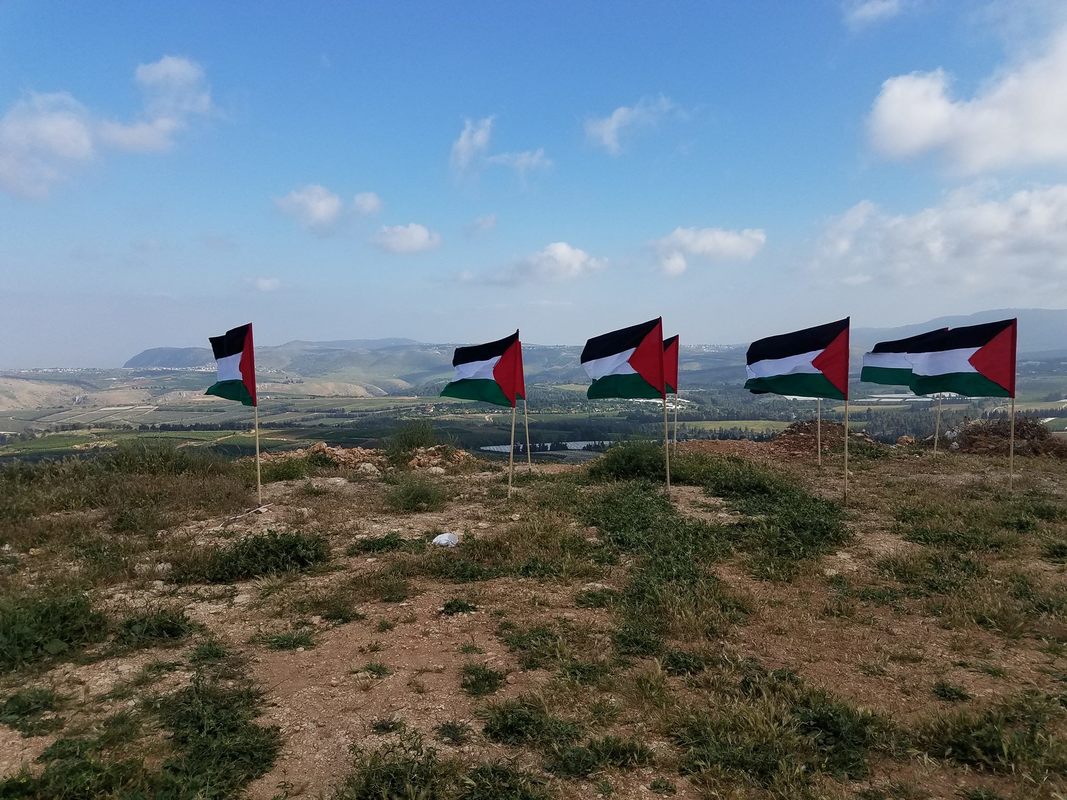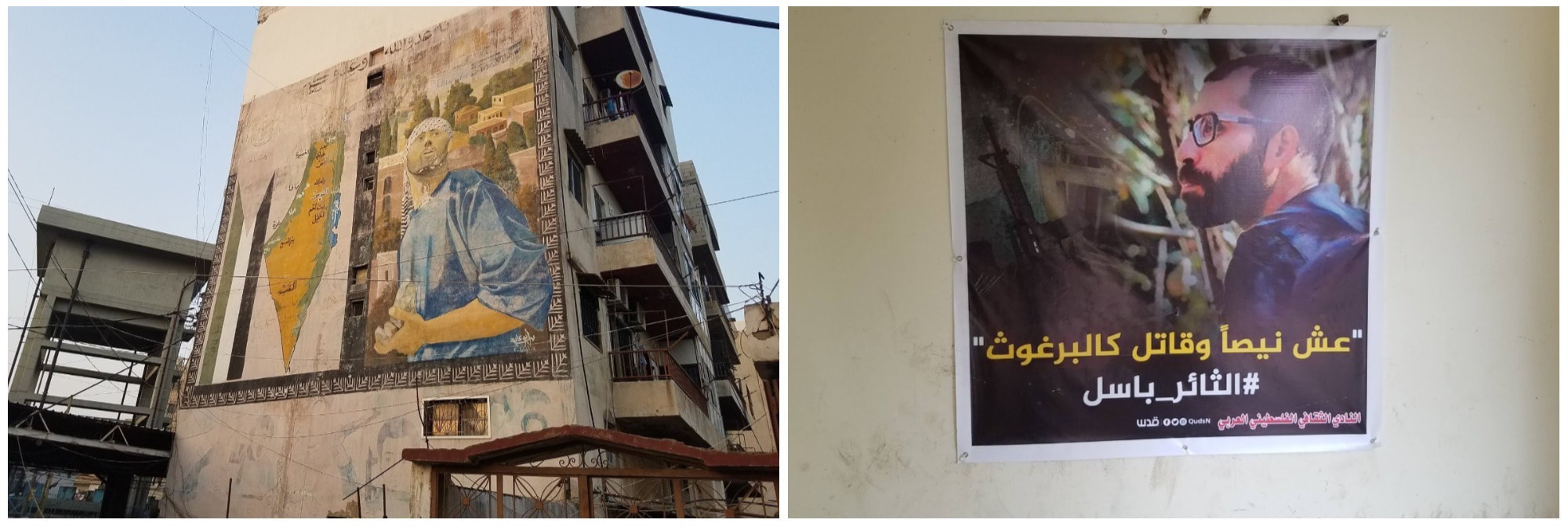Palestinian Refugees in Lebanon Are at the Heart of the Struggle and They Must Return Home in 20181/30/2018
Palestinian flags overlook Israeli-occupied Palestine from the Lebanese border. The following is a reflection a member of Black4Palestine on his 2017 work with Palestinian refugees in Lebanon. Read this and other reflections in our 2017 year in review newsletter Zionist forces ethnically cleansed over 75 percent of Palestinians from their land to create their state in 1948. Today it still denies these refugees their right to return to their homelands, and the Palestinian refugees in Lebanon live among the worst conditions across the diaspora. Last year I took two trips to Lebanon to get a better sense of conditions facing Palestinian refugees in the country and of what local work on Black-Palestinian solidarity might look like. Part of my work is sharing the plight of Black people in the US and helping to draw parallels between our experiences. After talking to a family in Burj el Barajneh camp that knew nothing about the Black struggle in the US for five minutes, they all sucked their teeth in disbelief and immediately noted our similarities. In many ways, Palestinians in Lebanon are the “Black” population of the country. Both Palestinians and Black people face exploitation because of discrimination against our racial or national background. A majority of us are poor both because we were dispossessed from our homelands and because our national economies rely on us for cheap labor. In Lebanon, Palestinians are legally barred from working in 70+ professions, largely forced to live in camps with inadequate electricity, water, and sewage, and face an educational system that guarantees they won’t succeed. Palestinian refugees deal with decades of trauma, poverty, and inadequate social services. The camps are seen as violent and ridden with drugs and crime, and most Lebanese avoid the camps like most Americans avoid Black neighborhoods. The camps are often the only places where other marginalized national groups (e.g. Syrians, Iraqis) can afford to live. While many people are disillusioned about the conditions of the camps and the liberation struggle, the camps still feel like Palestine. Generations of people continue to fight for their country and their people. At the Naqab Center for Youth Activities in Burj el Barajneh Camp, youth are given a map to trace the route to return to Akka in ‘48 Palestine from their camps in Lebanon. At the Arab Palestinian Cultural Club in Baddawi Camp, posters honor the martyr Basil Araj, who was assassinated in Palestine by the Zionist military in March 2017 (pictured below). The map of Palestine hangs everywhere—on the inner walls of people’s homes and on the outer walls of the buildings of the camps (pictured below). Palestine’s spirit and life blood continues, even though Zionists have separated the land from its people for 70 years. I had the chance to visit the Lebanese border with “Israel,” guided by a Nakba survivor who could point to the site of his original village from where we were. Israel has denied him and 7 million other Palestinian refugees their ability to go back home for 69 years now. One look at the land and it is clear why the refugees will never abandon their right to return: the camps are an insulting solution to the beautiful, fertile land they know is theirs. In a world where many of us struggle to say what liberation looks like, Palestinians can see it: it is returning to their land and their homes. Palestinian travels are restricted throughout the Middle East. Palestinians from Lebanon can’t visit Jordan or Palestine; Palestinians from Palestine can’t visit Lebanon; many Palestinians from Syria are now double or triple refugees in the Middle East or Europe. This is the essence of Zionist violence to the region: that indigenous populations that could once move freely between Beirut, Damascus, Haifa, Jerusalem and Gaza are now divided and confined to Western-imposed borders. The right to return of all Palestinian refugees is the most basic line that we in the West owe Palestine and we must name it and fight for it every time we talk about it. “End the occupation” is not sufficient unless we’re talking about the occupation of all Palestine, not just the West Bank and Gaza. Right of return is necessary for justice. Please help us make trips like this possible for more people in 2018 by supporting our work.
Comments are closed.
|


 RSS Feed
RSS Feed